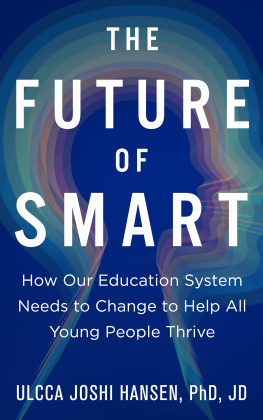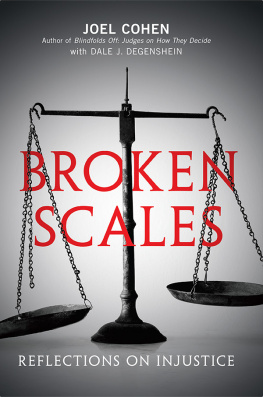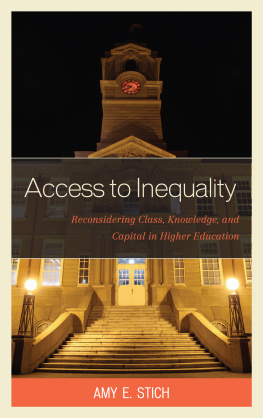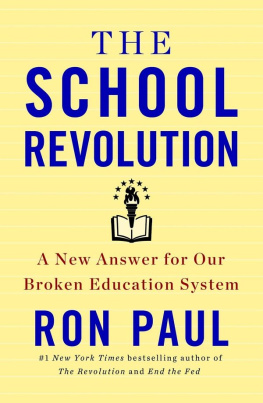Fredrik deBoer - The Cult of Smart: How Our Broken Education System Perpetuates Social Injustice
Here you can read online Fredrik deBoer - The Cult of Smart: How Our Broken Education System Perpetuates Social Injustice full text of the book (entire story) in english for free. Download pdf and epub, get meaning, cover and reviews about this ebook. year: 2020, publisher: St. Martins Publishing Group, genre: Politics. Description of the work, (preface) as well as reviews are available. Best literature library LitArk.com created for fans of good reading and offers a wide selection of genres:
Romance novel
Science fiction
Adventure
Detective
Science
History
Home and family
Prose
Art
Politics
Computer
Non-fiction
Religion
Business
Children
Humor
Choose a favorite category and find really read worthwhile books. Enjoy immersion in the world of imagination, feel the emotions of the characters or learn something new for yourself, make an fascinating discovery.

- Book:The Cult of Smart: How Our Broken Education System Perpetuates Social Injustice
- Author:
- Publisher:St. Martins Publishing Group
- Genre:
- Year:2020
- Rating:4 / 5
- Favourites:Add to favourites
- Your mark:
- 80
- 1
- 2
- 3
- 4
- 5
The Cult of Smart: How Our Broken Education System Perpetuates Social Injustice: summary, description and annotation
We offer to read an annotation, description, summary or preface (depends on what the author of the book "The Cult of Smart: How Our Broken Education System Perpetuates Social Injustice" wrote himself). If you haven't found the necessary information about the book — write in the comments, we will try to find it.
Fredrik deBoer: author's other books
Who wrote The Cult of Smart: How Our Broken Education System Perpetuates Social Injustice? Find out the surname, the name of the author of the book and a list of all author's works by series.
The Cult of Smart: How Our Broken Education System Perpetuates Social Injustice — read online for free the complete book (whole text) full work
Below is the text of the book, divided by pages. System saving the place of the last page read, allows you to conveniently read the book "The Cult of Smart: How Our Broken Education System Perpetuates Social Injustice" online for free, without having to search again every time where you left off. Put a bookmark, and you can go to the page where you finished reading at any time.
Font size:
Interval:
Bookmark:
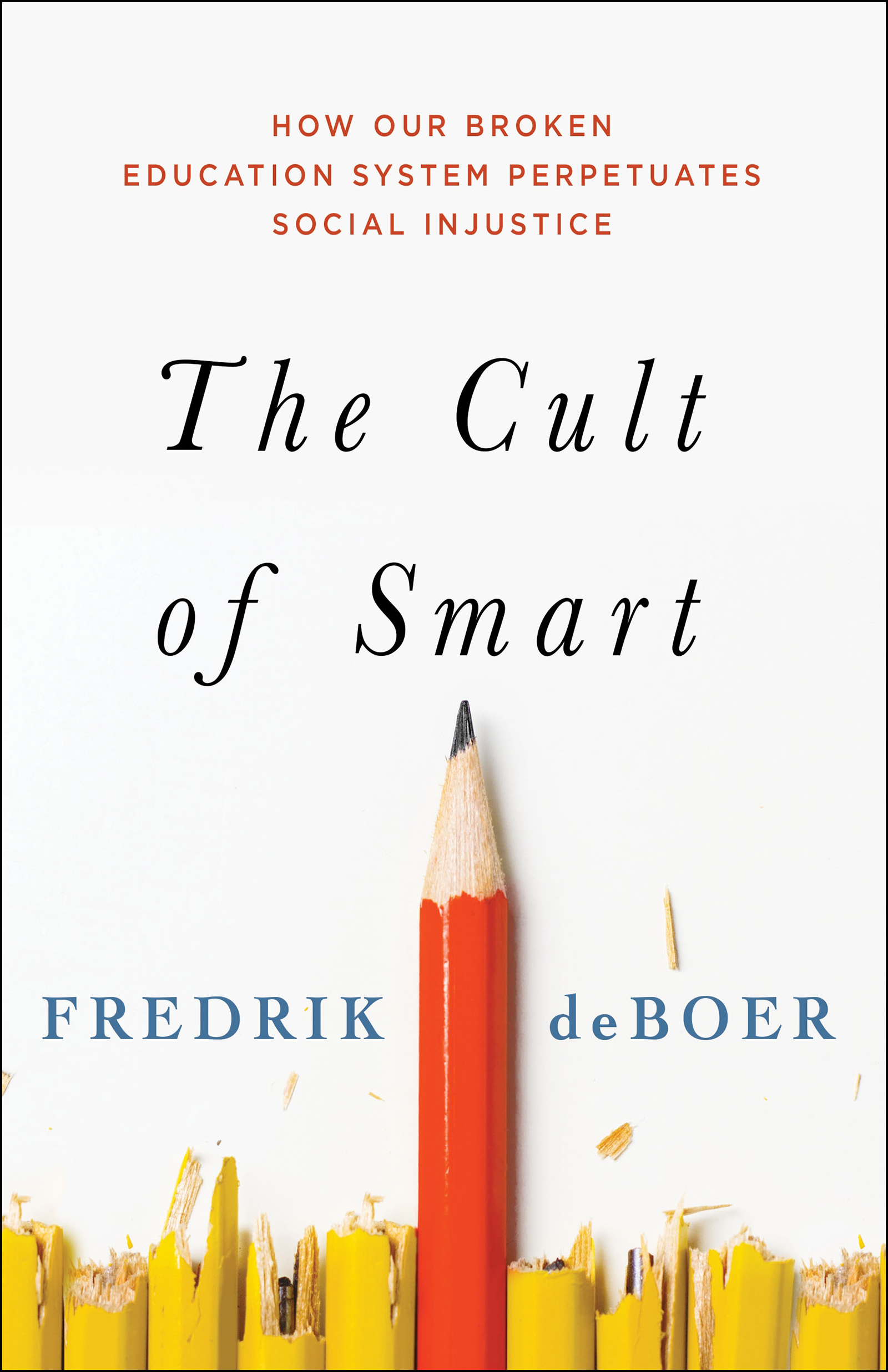

The author and publisher have provided this e-book to you for your personal use only. You may not make this e-book publicly available in any way. Copyright infringement is against the law. If you believe the copy of this e-book you are reading infringes on the authors copyright, please notify the publisher at: us.macmillanusa.com/piracy.
For Hugh Thompson Junior, Glenn Andreotta, and Lawrence Colburn
In early 2019, a story played out in the news that captured the publics attentiona strange, dark, gleeful kind of attention. The story sat at the junction of many of the popular obsessions of the twenty-first century: crime, fame, financial success, elite colleges, the meritocracy. And at the heart of it all lay the essential questionwhat does success mean today, and why?
The college admissions scandal of 2019 was vast in scope and intricate in its prurient details, but its basic dynamics were as plain and old as capitalism itself. The rich and connected, and in a few instances the famous, were revealed to have bent the rules in their efforts to secure choice spots in elite universities for their children. A federal investigation, codenamed Operation Varsity Blues, revealed that dozens of parents (including a few celebrities) had spent large sums of money to grease the collegiate wheels for their kids. Sometimes they steered money into athletic facilities and, in turn, coaches claimed that students were star athletes when they were anything but. Sometimes the quid pro quo with schools was explicit, but often these seem to have been tacit agreements, gentlemans agreements of the kind that the powerful enter into every day. Other times these payments were little more than out-and-out bribes, such as paying test proctors to bend the rules so students would perform better on entrance exams.
A new world of elite skullduggery was made public, pulled unwilling into the spotlight from the shadowy world of winks and nudges between the well-heeled. The story revealed the vast, shady constellation of college consultants, people employed by parents to get their kids into school no matter what, and who necessarily have every financial incentive to bend and break the rules as they see necessary. It highlighted the perfectly common practice of wealthy parents essentially buying an elite college letter of acceptance. And as many pointed out, these few dozen accused parents could only be the tip of the iceberg. How many thousands more were likely up to the exact same shenanigans, and were merely lucky enough to have evaded federal attention?
The story had something for everyone, or at least everyone in media. Conservatives, having long since declared war on the entire edifice of postsecondary education, chalked it up to another example of colleges as corrupt, failing institutions. The right also argued that these events showed the dissolute and selfish character of Americas elites, a group that they perceivedcorrectlyto have changed over time from suspender-clad Republicans to upwardly striving liberal yoga moms. Liberals argued that the scandal showed another impediment to the success of poor youth and youth of color, a case of meritocracy subverted by the moneyed elite. Leftists took the critique a step further, arguing that this was all just more evidence that meritocracy was a false god in the first place; they argued that far from representing a break with meritocracys noble purpose, the scandal highlighted meritocracy performing its secret function: maintaining the moneyed elites hold on wealth, access, and power.
All of these perspectives had elements of truth to them, and they were recited ad nauseam, with a torrent of think pieces flooding our print and digital media, with writer after writer mining the scandal to determine what it all meant and using it as fodder to discuss How We Live Today.
And yet there was something deeply parochial about the public debate, something limiting and narrow. The stories most politicos told were just the same old stories they always tell, dressed up for the latest turn of the news cycle. Yes, the rich were getting away with it all again, thats true and its notable, and like my fellow leftists said, it was just business as usual laid bare. But few people seemed to grasp other, more essential aspects of this story, aspects that, if examined, might say far more about the current state of Americas success industryand its fundamental brokennessthan most in the media realized.
The story of Operation Varsity Blues is the story of sheer desperation at play among people who are not used to feeling desperate. You might at first blush wonder why. The teenagers involvedand its important to say that some may have had no idea about the machinations going onwere among the most privileged people in the world. They had been lucky enough to have been born on third base, financially, and thus enjoyed an overwhelming likelihood that they would eventually cross home plate into social and financial comfort. Most seem to have been at least moderately academically successful in their own right, meaning that if they could not gain entrance into the schools like Stanford that they reached for, they could have settled for any number of lower-tier schools that regularly produce graduates who go on to great success. Even if they had truly poor academic credentials, they could likely find a school to accept them. When Americans conceive of college, they almost always think of exclusive schools, but most colleges and universities accept almost every student that applies. If you have a high school diploma and can cut a tuition check you can find a place to land.
Yet the lengths these people went to in order to raise their children up higher on the academic totem pole were vast. They risked arrest, obviously. They spent huge sums of money, some of them paying in the hundreds of thousands of dollars individually, and as a group spent untold millions. They knowingly and deliberately falsified applications and misrepresented the high school careers of their children. In true helicopter-parent fashion these captains of privilege invested everything in the hopes of their children attending somewhat more prestigious colleges.
From a purely actuarial sense, its debatable whether any of this made sense. Despite constant claims in the media that this has changed, the wage premium for having a college degree remains robust, although there are mountains of complication in those numbers, as we shall see. Whats less clear is whether its worth investing millions to move marginally up the hierarchy of college exclusivity; the research on financial returns there is far less certain, and whatever advantage may exist might simply be a function of the superior ability of the students in those superior schools, as we shall also see. Whatever the casethese parents took huge risks and made huge investments for vague and uncertain benefits. Why?
What they perceived, and what their children must have perceived, goes beyond the financial benefits of college. And its deeper than the actual education that college provides, the knowledge, skills, and values that can be absorbed by a willing student. What these parents understood was that the contemporary American obsession with academic success was about far more than upward mobility or self-improvement. They understood that this obsession has become so totalizing, so ingrained, so deeply baked into the cake of our national conception of success that we use academic performance as shorthand for a persons overall human value. Watch strangers exchange the names of the colleges they went to, even decades after the fact; in that moment there is an instant sizing up, an assignment on the pecking order that is no less real for being unvoiced. As petty as they may be, tacit hierarchies of value between people are a major part of adult social life, and parents are as concerned with them as they are with whether their kids can ride a bike.
Font size:
Interval:
Bookmark:
Similar books «The Cult of Smart: How Our Broken Education System Perpetuates Social Injustice»
Look at similar books to The Cult of Smart: How Our Broken Education System Perpetuates Social Injustice. We have selected literature similar in name and meaning in the hope of providing readers with more options to find new, interesting, not yet read works.
Discussion, reviews of the book The Cult of Smart: How Our Broken Education System Perpetuates Social Injustice and just readers' own opinions. Leave your comments, write what you think about the work, its meaning or the main characters. Specify what exactly you liked and what you didn't like, and why you think so.




